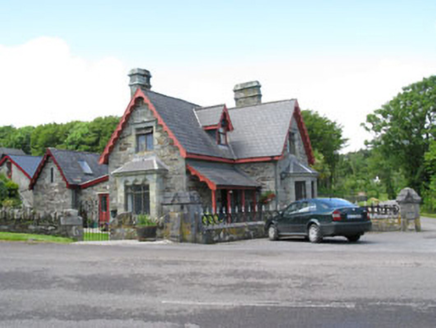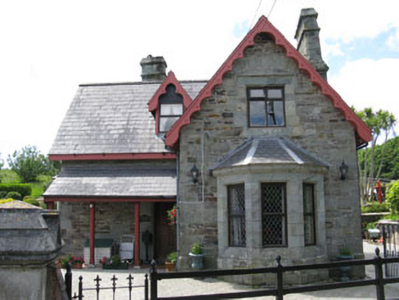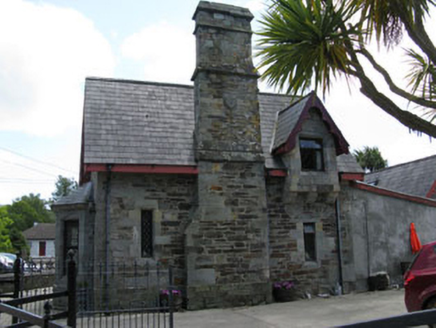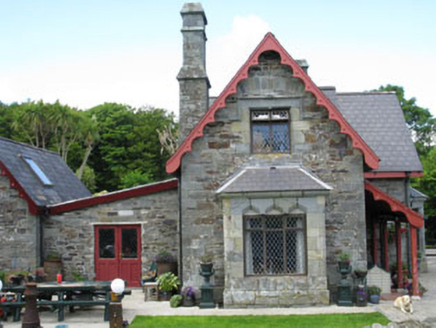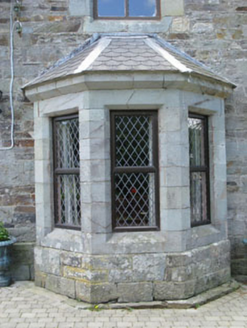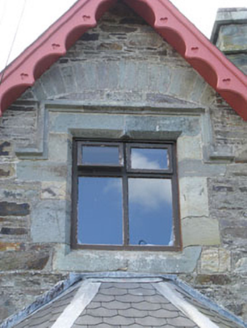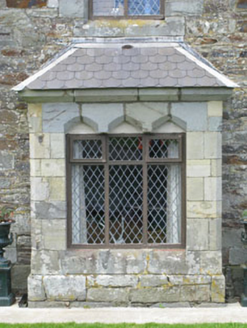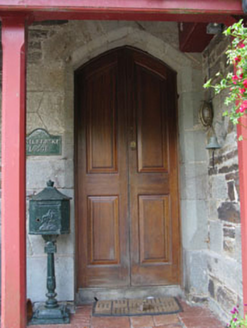Survey Data
Reg No
20914319
Rating
Regional
Categories of Special Interest
Architectural, Historical, Social
Original Use
Gate lodge
In Use As
House
Date
1800 - 1840
Coordinates
133037, 35794
Date Recorded
10/06/2009
Date Updated
--/--/--
Description
Detached T-plan two-bay two-storey with dormer attic former gate lodge, built c.1820, now in use as house. Canted bay window and lean-to veranda supported by columns to front (east). Hipped roofed box-bay window to side (south). Pitched roofed dormer oriel to side (north). Dressed rubble limestone chimneystacks with breakfront chimney breast. Later lean-to extension to rear connecting lodge to outbuilding. Pitched slate roofs having uPVC rainwater goods. Recent pitched roof dormer window and timber bargeboards to front. Rubble stone walls with dressed limestone quoins. Dressed limestone wall to oriel, having machicolations on tooled limestone corbels. Square-headed window openings with chamfered limestone sills, surrounds and lintels. uPVC casement windows. Oversailing dressed limestone voussoirs to front and side (south) elevations having tooled limestone hood moulding to side elevation. Pointed arches to box bay lintel, accompanying mullions absent. Pointed arch door opening with chamfered ashlar limestone surround to front elevation, having double-leaf timber panelled doors. Attached rubble stone single-storey pitched roofed outbuilding to rear. Rubble stone enclosing wall to front and side (south) having wrought-iron gates. Set within own grounds along roadside.
Appraisal
This highly attractive former gate lodge benefits greatly from the retention of numerous historic features such as a fine slate roof, imposing chimneystacks and interesting window surrounds. A high level of craftsmanship can be seen in the stonework, especially in its window surrounds and unusual oriel. It is part of an impressive complex of buildings including other gate lodges, Castlefreke, related outbuildings and a Church of Ireland church. Gate lodges were often used to indicate the high status of the main house which they served.
